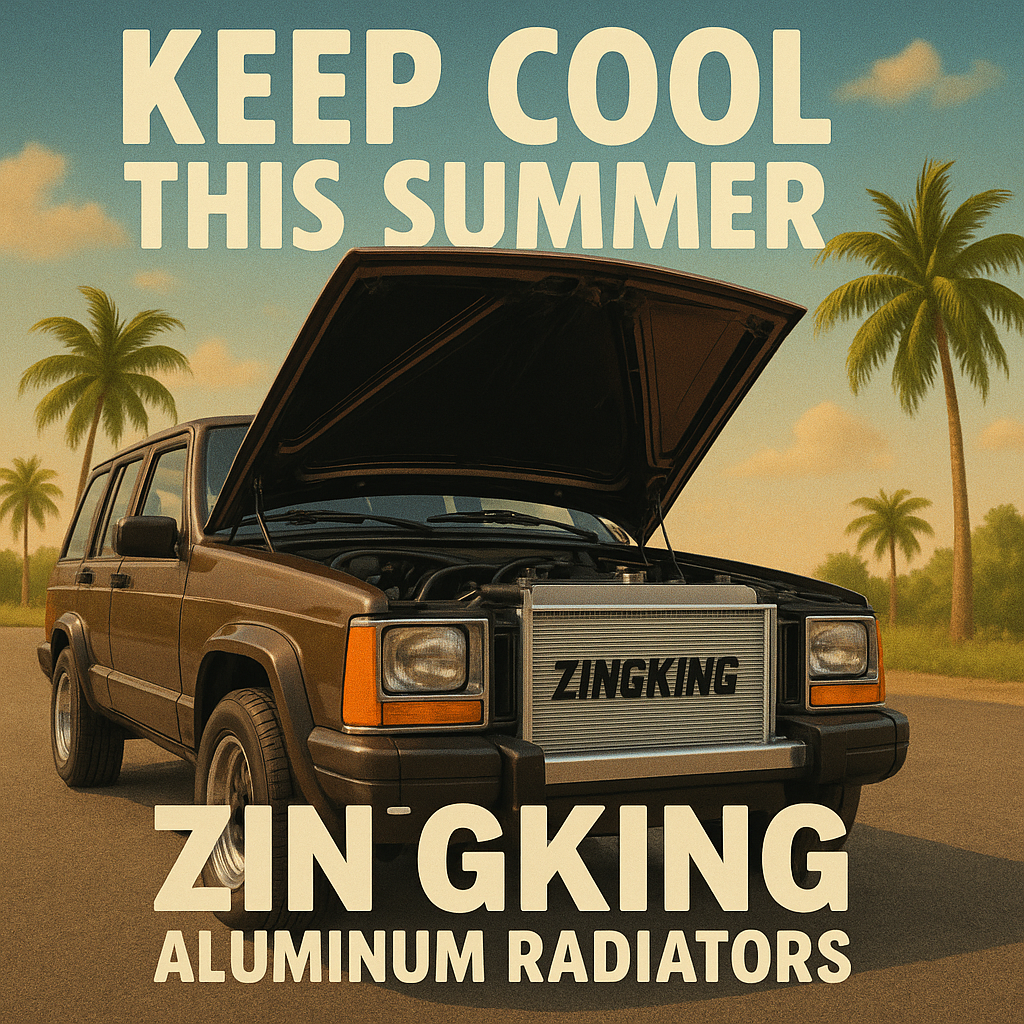
Noticias
Beat the Heat: Essential Summer Car Radiator Maintenance Tips to Keep Your Vehicle Cool
Beat the Heat: Essential Summer Car Radiator Maintenance Tips to Keep Your Vehicle Cool
Summer is here, and with rising temperatures, your car’s engine is working harder than ever. At the heart of your vehicle’s cooling system lies the car radiator—a critical component that prevents overheating and ensures smooth performance. Whether you drive a Chevrolet, Jeep, Ford, or any other vehicle, proper automotive radiator care is non-negotiable during hot weather. Here’s your ultimate guide to summer car radiator maintenance!
1. Inspect Coolant Levels Regularly
Your car radiator relies on coolant (antifreeze) to regulate engine temperature. Low coolant levels can lead to overheating, especially in summer. Check the coolant reservoir when the engine is cool. Ensure the fluid reaches the "Full" line. If it’s low, top it off with a 50/50 mix of coolant and distilled water. Never open the radiator cap while the engine is hot!
2. Look for Leaks or Corrosion
A leaking automotive radiator is a disaster waiting to happen. Inspect the radiator and hoses for cracks, rust, or damp spots. Pay attention to puddles under your car—green, orange, or pink fluid indicates a coolant leak. Corrosion inside the radiator can also reduce efficiency. If you spot issues, address them immediately or consult a professional.
3. Clean the Radiator Fins
Dirt, bugs, and debris clogging the car radiator fins restrict airflow, reducing cooling power. Gently rinse the fins with a hose or use a soft brush to remove buildup. Avoid high-pressure water, as it can bend the delicate fins. For heavily soiled radiators, consider a professional cleaning.
4. Check Hoses and Connections
Cracked or loose radiator hoses can cause coolant leaks and overheating. Squeeze the hoses—they should feel firm, not spongy or brittle. Tighten any loose clamps connecting hoses to the automotive radiator. Replace worn hoses before they fail.
5. Test the Radiator Cap
A faulty radiator cap won’t maintain proper pressure, leading to coolant loss and overheating. Inspect the cap for cracks or worn seals. Use a pressure tester (available at auto shops) to ensure it holds the recommended PSI for your vehicle.
6. Monitor the Cooling Fan
Your car radiator needs the cooling fan to pull air through the fins when idling or driving slowly. Turn on your AC and let the engine idle—the fan should engage. If it doesn’t, the fan motor or relay may need replacement.
7. Avoid Overloading Your Vehicle
Heavy loads strain the engine, forcing the automotive radiator to work overtime. Pack light for summer road trips, and use a trailer for extra cargo if needed.
8. Schedule a Professional Flush
Over time, coolant breaks down and collects contaminants. A radiator flush every 2–3 years (or as recommended by your manufacturer) clears sludge and ensures optimal coolant flow. Pair this service with a system inspection for peace of mind.
Keep Your Cool This Summer!
Your car radiator is your engine’s first line of defense against summer heat. Neglecting maintenance risks costly repairs or even engine failure. At ZINGKING, we specialize in high-performance radiators for Chevrolet, Jeep, Ford, and more. Browse our durable, fit-for-purpose radiators to keep your ride running smoothly all season long.
Shop now and give your vehicle the cooling system it deserves!
ZINGKING
Premium Car Radiators for Chevrolet, Jeep, Ford & Beyond
